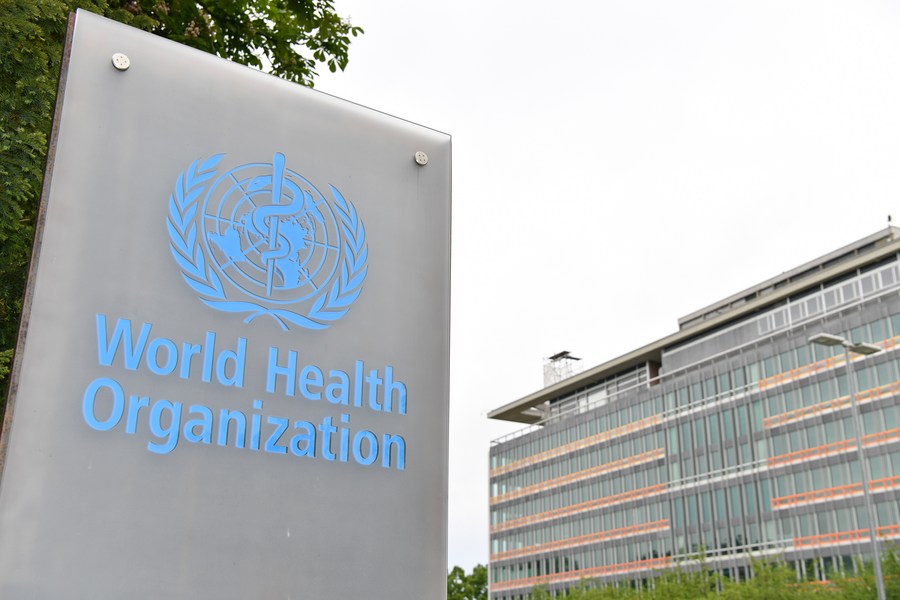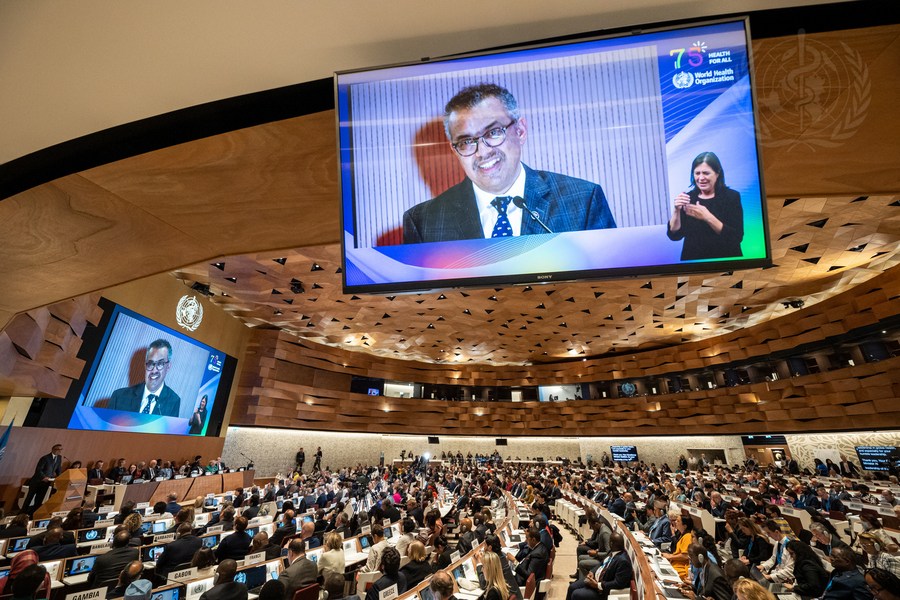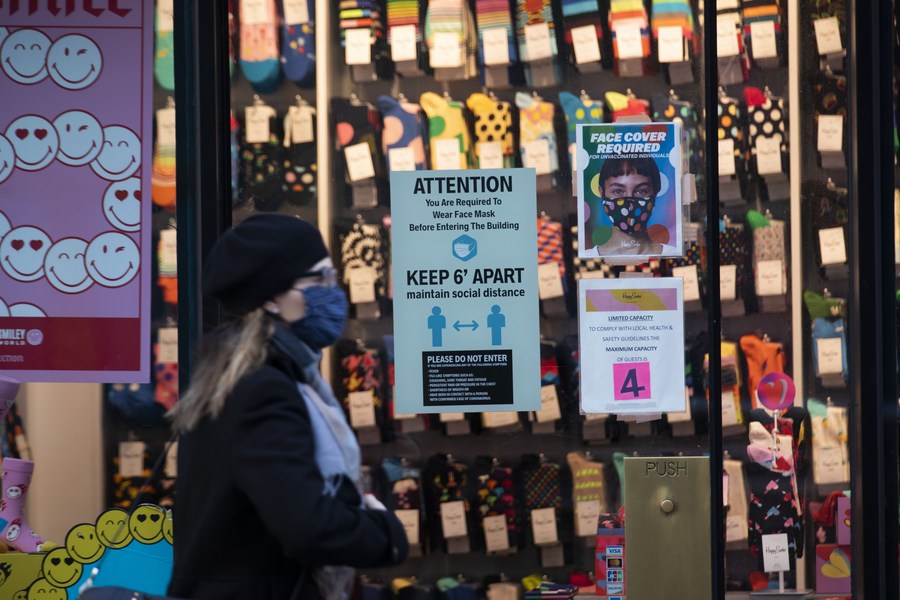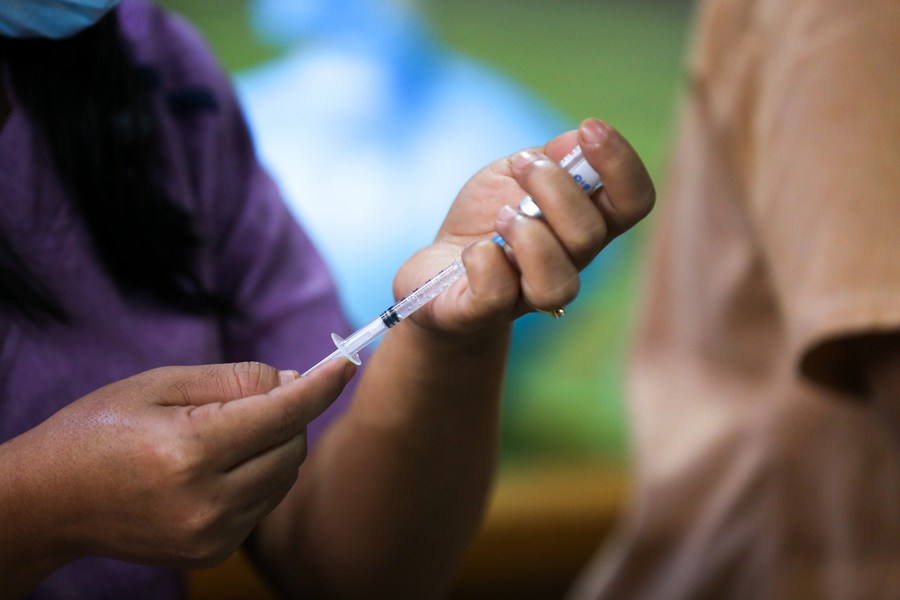Source:Xinhua 2023-05-31

This photo taken on May 21, 2023 shows a logo of the World Health Organization (WHO) with the WHO headquarters in the background in Geneva, Switzerland. (Xinhua/Lian Yi)
"COVID showed the world how vulnerable we all are and what needs fixing in the global public health architecture if we are to be better prepared for the next big event," said Ashley Bloomfield, former director-general of health from the Ministry of Health, New Zealand.
BEIJING, May 31 (Xinhua) -- While COVID-19 no longer constitutes a public health emergency of international concern (PHEIC) and most countries phase out containment measures, how to deal with future pandemics and build a global community of health for all through global health governance remains a crucial issue for all.
FIX GLOBAL HEALTH ARCHITECTURE
The world has paid a high price for dealing with waves of infections. Repeated resurgence and evolving variants of COVID kept posing threats for all countries, overstretching health systems and taking a heavy toll since its outbreaks in early 2020.
The World Health Organization (WHO) was criticized for its belated and overcautious response to several key matters, such as warning about the human transmissibility of the virus, declaring a PHEIC, etc.
Although major Western powers failed to collaborate in dealing with the pandemic, consensus had been reached by most countries that a new global agreement to prepare, guide and coordinate emergency response is much needed.

Tedros Adhanom Ghebreyesus, director-general of the World Health Organization (WHO), speaks at the opening ceremony of the 76th World Health Assembly in Geneva, Switzerland, May 21, 2023. (Pierre Albouy/World Health Organization/Handout via Xinhua)
At the just-concluded 76th World Health Assembly (WHA), the decision-making body of the WHO, in Geneva, delegates, observers and stakeholders discussed strengthening preparedness and response to health emergencies. They agreed that the latest amendments to the International Health Regulations (2005) should address the challenges posed by the COVID-19 pandemic.
The WHO has received more than 300 proposed amendments covering public health response, core capacities for surveillance and response, cooperation and assistance, and will present them to the next WHA in May 2024.
Governments are also negotiating the drafting of a WHO instrument on pandemic prevention, preparedness and response, known as a pandemic accord.
"COVID showed the world how vulnerable we all are and what needs fixing in the global public health architecture if we are to be better prepared for the next big event," said Ashley Bloomfield, former director-general of health from the Ministry of Health, New Zealand.

Notices of measures against COVID-19 are seen on a door of a store in New York, the United States, Feb. 14, 2022. (Xinhua/Wang Ying)
HEALTH POLICY VS ECONOMY
Since the outbreak of the pandemic, governments have faced a dilemma between controlling the pandemic and maintaining the economy. It has been proved that no country's economy would thrive without strong and constant health measures, and reassessing the importance of strong public health policies in reviving the economy is urgently needed.
According to a report by Lancet COVID-19 Commission, economic recovery in the post-pandemic era depends on sustaining high rates of vaccination coverage and low rates of new, clinically significant COVID-19 infections. Fiscal and monetary policies are also crucial to mitigate the socioeconomic effects of the pandemic and prevent a financial crisis.

A health worker prepares a dose of COVID-19 vaccine at a school in Yangon, Myanmar, Jan. 16, 2023. (Photo by Myo Kyaw Soe/Xinhua)
CLOSE INEQUITABLE GAP
Long-standing inequities and inequalities in global health need to be addressed as the gruelling pandemic has widened the health gap between developed and developing countries.
According to figures from Our World in Data, many Western developed countries have not yet fulfilled their promises to deliver vaccines to low-income countries. For instance, the United States had announced the donation of nearly 400 million doses of vaccines but has yet to be delivered.
Compared with the empty promises by Western countries, China has been an indispensable player and will continue to play an important role in supplying global public goods, such as vaccines, and closing the global health gap.
Seth Berkley, CEO of the global vaccine alliance Gavi, said that Chinese vaccines play a key role when the global COVID-19 vaccine supply is particularly tight in 2021.
China's involvement in global health governance is also increased thanks to its innovation and production capacity and its growing commitment to global cooperation, according to analysts.